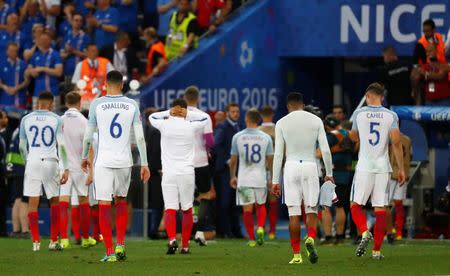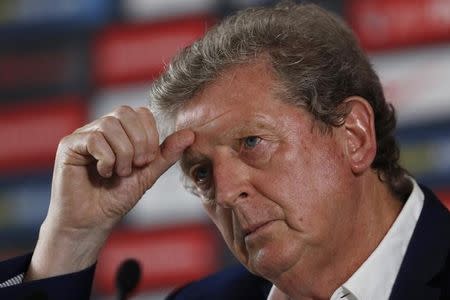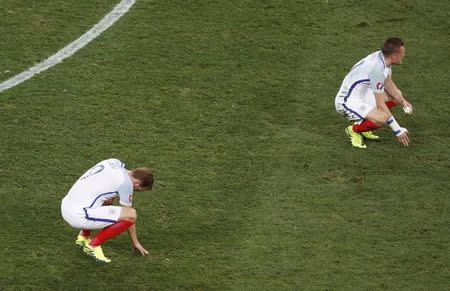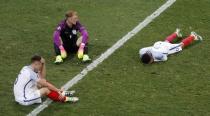English sport fans forced to become British
By Neil Robinson LONDON (Reuters) - As Scotland's Andy Murray mounts his annual assault on the Wimbledon title and the Welsh football team prepare for the biggest match in their history, English sporting fans are looking over the borders for sporting heroes to follow. The fallout from England's disaster at Euro 2016, where they were humbled by Iceland, is still being felt with anger directed at the players and uncertainty over whether they can trust an Englishman to replace manager Roy Hodgson who quit within hours of the defeat. At Wimbledon, meanwhile, not one English player survived the first week of the tournament, leaving Murray to carry the annual home hopes. But for once Murray has a new rival for English affections with the Welsh footballers winning many admirers across the River Severn. "I think the English are definitely behind the Welsh," said Rogan Taylor, a football academic from the University of Liverpool Management School, told Reuters in a telephone interview. "Mind you I live in a Celtic city (Liverpool), which definitely helps. We can take pleasure in what the Irish, Scots and Welsh do although I am not so sure it would work the other way round." All the signs are that the view from Liverpool reflects the national mood. On Monday, English comedian David Baddiel, who co-wrote a popular anthem associated with the England team, thanked Wales's footballers on Twitter for bringing joy to his Welsh-born father who suffers from Alzheimer's. "Just phoned my dad. Through his dementia his excitement shone through. Thank you this glorious Welsh team," tweeted Baddiel, whose "Three Lions" song is still sung at England games 20 years after it was written to mark the country's hosting of the Euro 96 tournament. SOLD OUT Many venues in England will show Wales's semi-final against Portugal on Wednesday, with the London-Welsh Centre in England's capital among those announcing that tickets have been sold out. Several observers have suggested it is the manner in which the Welsh have conducted themselves, on and off the pitch, which has been so attractive to the English, who are used to decades of failure from their players and boorish behaviour from their fans. "The Welsh players have shown strength, self-belief and a modesty of approach that many find refreshing and attractive," wrote Welsh-born BBC newsreader Huw Edwards in an article in the Daily Telegraph. “If the players have been superb ambassadors for Wales – and they most certainly have – well, the same can be said of thousands of Welsh fans who have followed their team across France with none of the ugly appetite for trouble seen elsewhere." Welsh talisman Gareth Bale, who was criticised earlier in Euro 2016 for saying Welsh players played with more passion than the English, has welcomed support from all sides of the United Kingdom and the Welsh players appear to have been forgiven for being caught on film celebrating England's defeat by Iceland. In recognition of the new sense of British unity, the Welsh tourist board has released a guide to help non-native speakers sing the national anthem, Hen Wlad Fy Nhadau, which translates as The Land of My Fathers. As for English football supporters, they still have one occasion to celebrate this summer - the 50th anniversary of their only major tournament success at the 1966 World Cup. (Editing by Ed Osmond)

 Yahoo Sport
Yahoo Sport 



















































